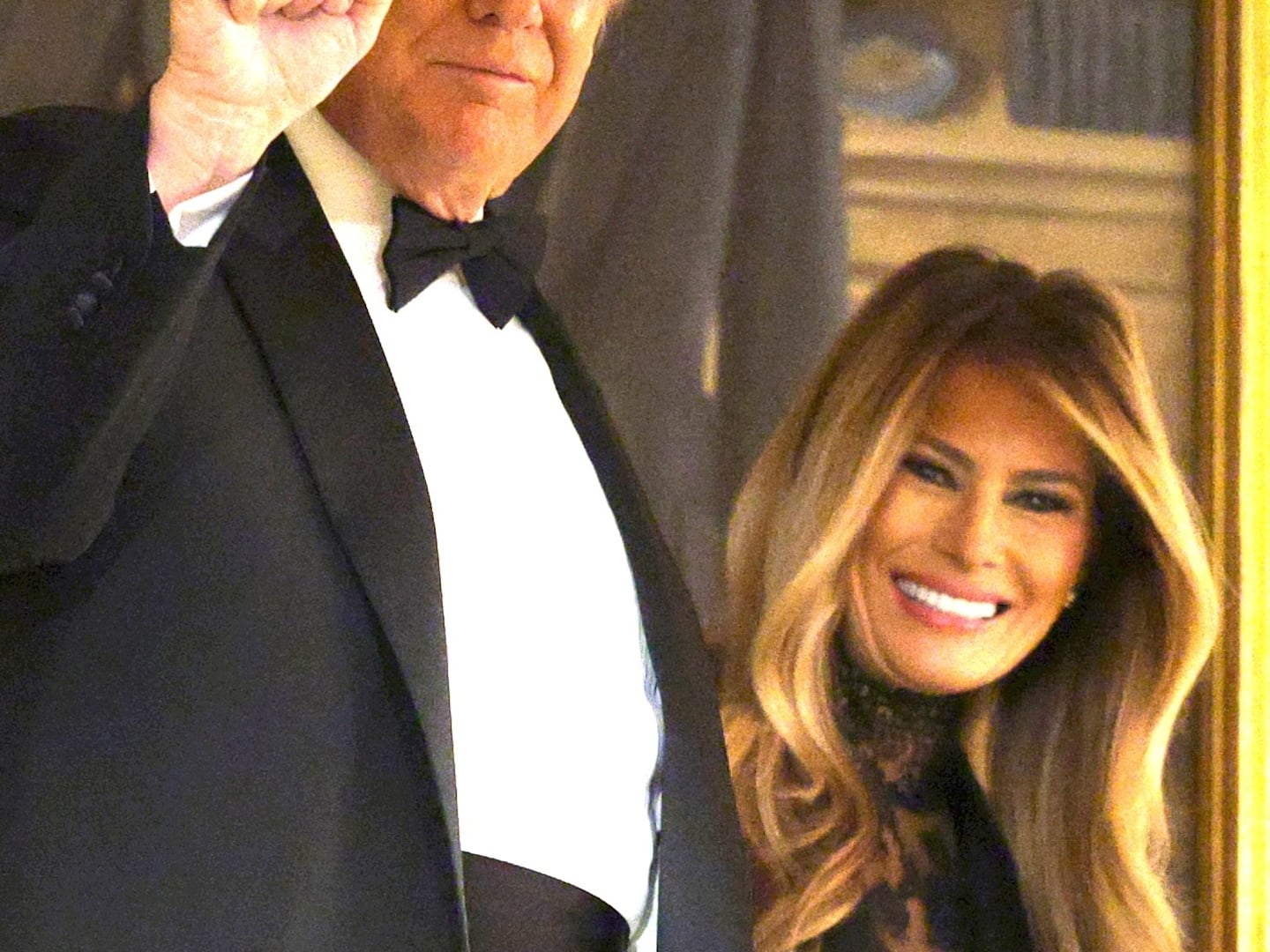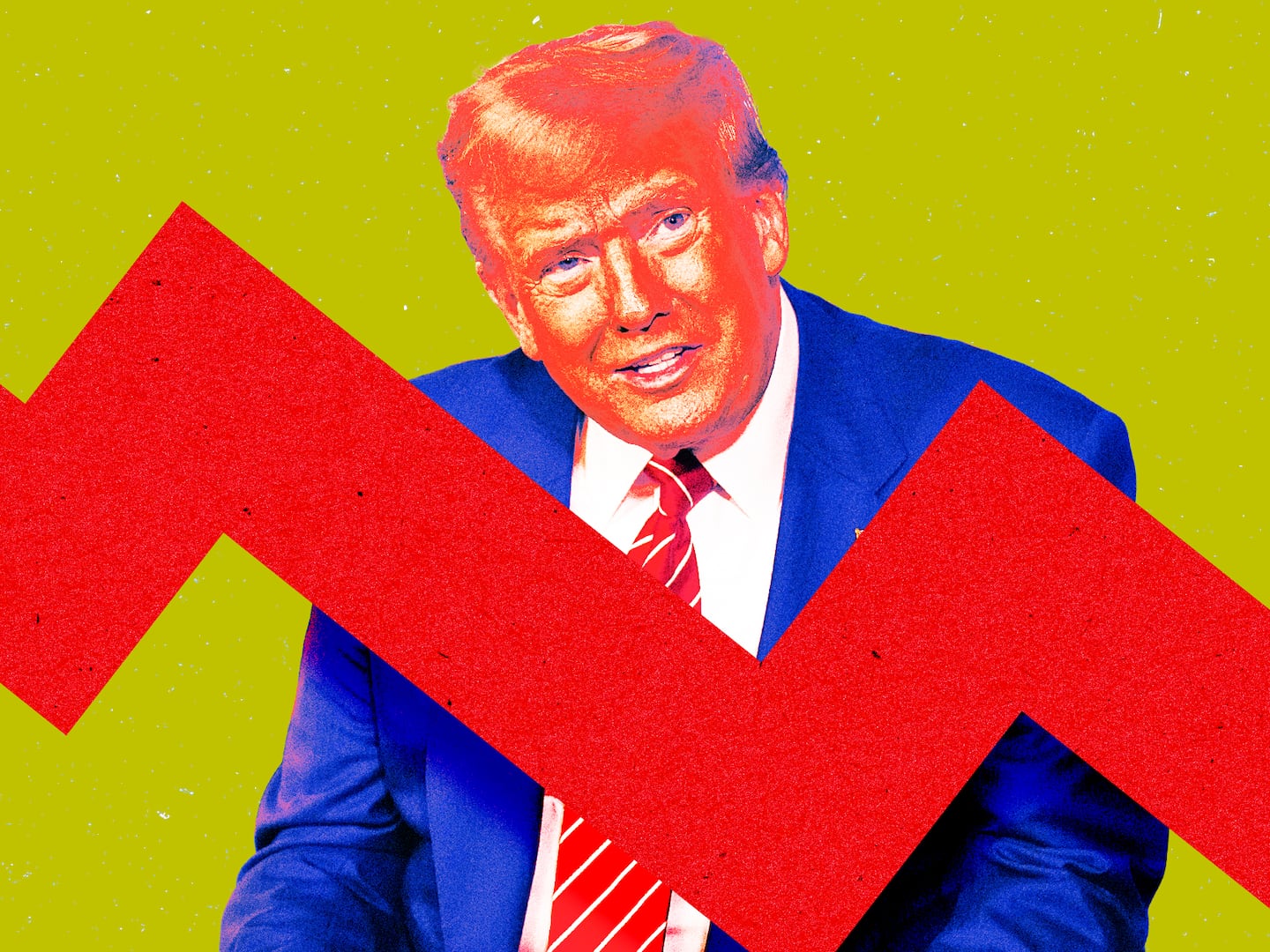The Trump administration is eyeing a top Department of Labor post for a transition official who has steered more than a million dollars from a union-backed dark money group to his consulting company—and failed to properly report the transactions to the IRS.
Curtis Ellis, who is reportedly a finalist to be DOL’s top diplomat, last week began purging his Twitter account of controversial comments. He has called Senate Majority Leader Mitch McConnell “China’s bitch” in a since-deleted tweet, accused Democrats of plotting ethnic cleansing against blue-collar white people, and declared that hedge funds “have done more damage to [the United States] than Al Qaeda.”
If Ellis is selected to lead DOL’s Bureau of International Labor Affairs—Bloomberg BNA reported last week that Ellis is one of two finalists for the post—he will oversee efforts to improve labor conditions abroad and secure market access for U.S. exports. But controversy over his past comments appears to be taking a toll: Ellis’s was sent home early from a G-20 summit in Germany last week, where he was slated to flank Labor Secretary Alex Acosta. It was not immediately clear why he was yanked from the summit, and DOL did not respond to a request for additional information.
Ellis’s off-color comments could be the least of his concerns. Public records reveal that he has taken seven-figure sums from a leading labor union and steered that money to his consulting firm. He routed the funds through a dark money nonprofit that failed to make legally required disclosures of the business arrangement.
Unions now wants nothing to do with Ellis, but until recently at least one saw him as a way to advance protectionist anti-free trade policies among Trump-aligned Republicans.
Ellis’s rise to prominence as a voice of the new Trumpian brand of nationalist politics illustrates the blurring of traditional lines of political allegiance. It also shows how some political figures previously relegated to the political fringes are cashing in on Trump’s ascendance—literally, in some cases.
Ellis was an America-First protectionist long before Trump burst onto the political scene. Once a self-described progressive Democrat, Ellis’s nonprofit “dark money” group, the American Jobs Alliance, received early funding from New York industrialist Jack Davis, who hired Ellis to run an unsuccessful 2011 congressional campaign that focused on supporting U.S. manufacturing and combatting outsourcing.
He parlayed an emphasis on those areas of economic policy into regular writing gigs at far-right media outlets including World Net Daily, which, with Trump’s help, popularized the false allegation that President Obama was not born in the United States, and Breitbart News, the Trump-backing media outlet formerly run by chief White House strategist Steve Bannon.
Ellis’s long record of opposition to free trade earned him a spot on the Trump transition’s DOL “beachhead team.” But before Trump and the accompanying Republican movement away from free trade, Ellis was a political outlier, and AJA was a blip on the policy radar. In 2014, with a budget of less than $50,000, the group focused most of its resources on maintaining its website and building membership lists. It vehemently opposed free trade, pending trade agreements, and policies that Ellis felt were responsible for the outsourcing of manufacturing jobs.
Controversy over a landmark Asian free trade deal became a rallying cry for Ellis and his group as campaign season approached. And when Trump burst onto the scene in early 2015, trade protectionism was suddenly in vogue—even on the political right, historically more deferential to the free market.
The Communications Workers of America, which also stridently opposed the Trans-Pacific Partnership, saw an opportunity in Ellis and his group. With increasingly vocal opposition among Republicans to TPP and Trade Promotion Authority, a congressional procedure to advance trade deals negotiated by the executive, the union saw a chance to rally GOP legislators in opposition to the measures.
In 2015, CWA steered about $1.13 million to Ellis’s group, according to the union’s annual financial disclosure statements. The funds accounted for the vast majority of the $1.24 million in contributions to AJA that year. Most of the funds were itemized for lobbying: they supported AJA’s efforts in “advocating or opposing legislation,” according to CWA disclosures.
A source with knowledge of CWA’s financial commitments said the union hoped that Ellis would make inroads with Republicans and rally them in opposition to TPP and TPA, which Ellis had dubbed “Obamatrade.” He set up a website, Obamatrade.com, to house advocacy campaigns aimed at pressuring members of Congress to oppose the trade deal and its legislative “fast track” authority.
In just a year, due almost entirely to labor union support, AJA’s budget had grown more than twenty-fold. The sudden increase reflected the growing political opportunities for free trade opponents who hoped to get Republicans on board with the protectionist policies espoused by their emerging presidential frontrunner.
For Ellis, it wasn’t just a chance to escape the political wilderness. It also appears to have been a financial windfall.
AJA’s annual tax filings show it spent a total of $1.25 million in 2015. Nearly all of that money, $1.22 million, was paid to a single consultant, listed on that tax form as Revelent Info Ltd.
That appears to be a misspelling of the company’s actual name, Relevant Information Ltd. New York state incorporation records show the company was previously called Curtis Ellis Ltd. An unsuccessful 2016 Democratic congressional campaign for which Ellis served as spokesman paid him through that company.
Ellis did not respond to questions about the company, its involvement with his nonprofit group, and apparent reporting discrepancies on its tax forms, which did not disclose his potential financial conflict. The Labor Department also did not respond to a request for comment.
Federal tax law “expressly prohibits inurement of the net earnings of [a 501(c)(4) group] to the benefit of any private shareholder or individual,” according to the IRS.
Nonprofit tax forms require disclosure of any business transaction with a company owned or run by an executive or director of the nonprofit, and any compensation received by an executive or director for services rendered by an unrelated organization to that nonprofit. AJA indicated on its form that neither had taken place in 2015.
“If Relevant Info is Ellis’ firm, than that could raise questions of whether AJA is operating for the private benefit of Ellis, in violation of its tax-exempt status,” according to Brendan Fischer, a spokesman for the Campaign Legal Center, a watchdog group.
Absent additional information, Ellis’s precise business arrangements, and the links between his nonprofit and for-profit enterprises, remain murky.
But the payments to Relevant Information raise additional questions about apparent reporting discrepancies. Because nearly all of AJA’s 2015 budget was paid to Relevant Information, the vast majority of its activities appear to have taken place through an independent entity. That entity engaged in what the IRS considers “grassroots lobbying”—it asked supporters to call Congress and urge it to oppose legislation introduced and passed in 2015.
But AJA’s 2015 tax form disclosed no payments to independent contractors for lobbying expenditures. In fact, it disclosed no lobbying expenditures at all. Instead, it disclosed about $730,000 in spending on “educational” communications, a category that does not include direct calls to support or oppose pending legislation.
Discrepancies in AJA’s tax filings could fuel increasing criticism of his reported DOL appointment. Ellis’s reported candidacy for that post has already drawn scathing criticism from Trump administration critics.
A CWA spokesperson declined to speak on the record about its work with Ellis or its views on his potential appointment. But the AFL-CIO, a labor federation that includes CWA, said last week that it strongly opposes that appointment.
“Ellis’s extreme views are fundamentally inconsistent with ILAB’s mission to effectively negotiate and advocate for workers around the world,” AFL-CIO president Richard Trumka said in a statement on Friday. “While reports of his early departure from the G20 meetings raises questions about his nomination status, we oppose any consideration of him for this key role.”
Sen. Patty Murray, the top Democrat on the Senate Labor Committee, also came out in opposition to Ellis’s appointment.
“Putting a person with extreme, partisan views—not to mention close association with [chief White House strategist and former Breitbart chief] Steve Bannon—in charge of representing the Department of Labor internationally would be a clear and early indication of the direction Mr. Acosta plans to go, as well as a threat to workers here and abroad,” Murray said in a statement last week.
Though Trump’s administration is stacked with officials of a more traditional Republican bent, Ellis exemplifies the unorthodox and often counterintuitive ideological underpinnings of Trumpism.
“Curtis Ellis is a conservative activist and not a liberal Democrat—he in fact writes a column frequently for the very conservative World Net Daily,” Breitbart wrote in his defense last year. But that distinction may mean less than it used to.
Fischer was puzzled by his apparently contradictory political affiliations. “This is all very strange,” he wrote. “The American Jobs Alliance certainly doesn’t look like a union front group.”






